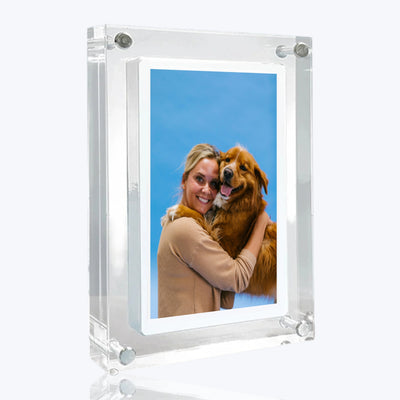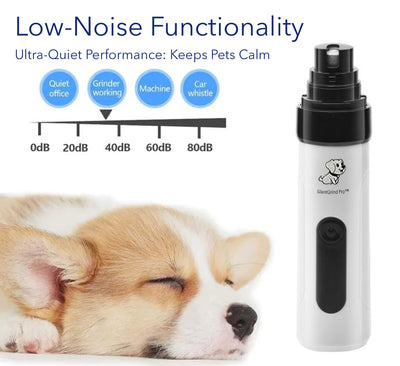Dairy products can be quite appealing to our furry canine companions. However, when it comes to milk, can dogs drink it? The answer is a bit more nuanced. Similar to many human foods, milk should be given to dogs in moderation. It's important to note that several dogs are lactose intolerant, which means that consuming milk can result in digestive issues.
What's the Recommended Amount of Milk for Dogs?
In small quantities, milk can be a safe treat for your dog. Offering a few tablespoons of cow's milk or goat's milk occasionally can be a delightful reward. However, it's best to avoid giving your dog an entire bowl of milk at once, as it can lead to unpleasant reactions such as vomiting, diarrhea, and loose stools.
It's crucial to be aware that milk is high in fat and natural sugars. Excessive consumption of these can contribute to obesity and pancreatitis, which are serious health conditions.

Should Dogs Consume Milk?Puppies typically drink milk from their mothers for approximately the first six to seven weeks of their lives. After this period, they can obtain all the necessary nutrition from a properly formulated dog food along with clean, fresh water to maintain a happy and healthy life.
Can Puppies Drink Cow's Milk?
While cow's milk contains beneficial nutrients like calcium and proteins, it is not a healthy choice for dogs of any age. Cow's milk contains lactose, a sugar that dogs lack the necessary enzyme to digest. Consuming cow's milk can lead to digestive discomfort and potential excretion issues for dogs.

Understanding Lactose Intolerance in Dogs Dairy products are a common source of food intolerance in dogs. Many canines are lactose intolerant, meaning they struggle to digest milk. Some lactose-intolerant dogs may have difficulty with milk consumption but can tolerate dairy products like cheese and plain yogurt, which are typically easier to digest. However, other dogs may experience adverse reactions to dairy in general.
How to Identify Lactose Intolerance in Your Dog The severity of lactose intolerance can vary among dogs, with some experiencing mild symptoms while others may face more severe reactions. The most common signs include loose stools, gas, vomiting, abdominal pain, and diarrhea. Owners often discover their dog's lactose intolerance when they feed them milk. However, it can be challenging to determine if your dog is lactose intolerant if they have consumed a large amount of milk, as this can trigger vomiting and diarrhea even in non-lactose-intolerant dogs. If your dog exhibits these symptoms after drinking a small amount of milk, it's best to find an alternative treat.
Is Milk Recommended for Dog Constipation?
If you notice your dog struggling with constipation, it can be a discomforting experience for them. However, it is not advisable to give milk as a remedy for constipation in dogs. Milk can lead to diarrhea and stomach upset, which may further disturb your dog's gastrointestinal tract and potentially worsen the issue. Instead, consider providing your dog with exercise or consult a veterinarian for suitable over-the-counter medications to help alleviate the constipation problem.

Can Dogs Consume Plant-Based Milks?
Plant-based milks are dairy-free alternatives. However, does that mean they are safe for dogs? Surprisingly, they are not necessarily better for your pooch. Similar to cow's milk, plant-based milks present similar issues, and it's advisable to refrain from giving any milk to dogs.
Plant-based milks are often allergenic for many dogs, and even those without allergies can experience stomach and gastrointestinal upset when consuming them. Additionally, like cow's milk, plant-based milks lack the ability to provide a sense of fullness for dogs while being high in fat and calories, leading to unwanted weight gain if given frequently. Moreover, sweetened versions of plant-based milks may contain artificial sweeteners that can be toxic to dogs.

Almond Milk
Although almonds and almond milk may sound healthy, they are not recommended for dogs. Almond milk is high in fat and calories, and some variants may even contain artificial sweeteners like xylitol, which can be poisonous to your furry companion.
Oat Milk
Oat milk is a delicious alternative for humans but not suitable as a regular part of your dog's diet due to its high fiber content. While it contains safe ingredients like rolled oats and water, oat milk can cause an upset stomach in dogs.
Coconut Milk
Coconut milk, another favorite among humans, should generally be avoided for dogs. It can potentially act as an allergen, lacks significant nutritional benefits, and may lead to stomach upset in our canine friends.
Remember to consult your veterinarian before introducing anything new into your dog's diet. Additionally, explore further information about foods that dogs can and cannot consume to ensure their overall well-being.






















